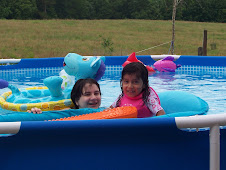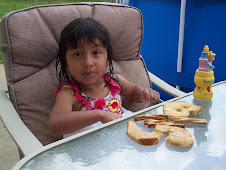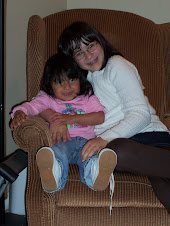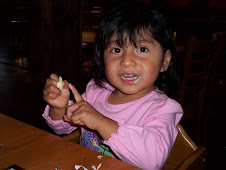Hi everyone, my procedure yesterday went very well. I am quite sore, lieing on an icepack as I type, but had some things I wanted to share with you all.
The following is an article from Teach Magazine's email newsletter. It came today, and I thought this particular article was really nice. I asked Lorrie Flem (the editor) if I might share it with those in my blog world and she said "Yes!" So, here it is! This newsletter was all about different types of hospitality, and having been one who's spent lots of time in hospitals with family members, I know how much the things in this particular article mean to someone in that position. Visiting others in the hospital can be an uncomfortable experience for some people, but it doesn't have to be. The article is copyright 2008 - Teach Magazine and is entitled "Hospital Hospitality". Enjoy! And visit their website, for more wonderful articles on Homemaking and Homeschooling. www.TEACHmagazine.com
TEACHing Tips - Hospital Hospitality
By Donna Venning
When you hear of a friend or church member that is in the hospital, many of us offer to make meals to bring to their home. It's awesome to see Christians ministering to each other this way (or even better, ministering to non-believing neighbors & co-workers!). But in addition to the meal-at-home idea, I want to challenge you to consider a few things to do while someone is in the hospital. This is often a very trying time for the other family members, who may be spending long hours at the hospital, many days in a row. With that in mind, here are some suggestions geared toward showing care and concern for the patient's family.
MEALS: Meals at hospitals can be expensive. Package up a bag or basket of sandwiches, bottled water, nuts, fruit and other non-refrigerated items and deliver it to the family at the hospital. Many hospital waiting rooms have microwaves, too, so you could even take soup or other dishes that just need a little heating up. Consider many of the "prepared and ready to eat" type of things that you can purchase at the store: no longer just the traditional "cup of soup," you can now purchase pastas and even desserts that simply require the person to heat, eat and toss the container. Don't forget to bring some plastic utensils.
ADD-INS: My stepmother (who has spent more than her fair share of time in hospital waiting rooms) said that she has found that keeping a journal during this time was helpful. Consider putting a journal into the basket with the meals: the journal can be used for the family to write their thoughts or even to keep track of the medical concerns and treatments that the physicians discuss with them. Other thoughtful items to put into the basket: small bible, devotional book or magazine. Offer to lend your Walkman or Portable DVD player (along with a few movies) if you have one. If you have a small tape recorder, offer that to the family: they may want to record what the doctor says when he stops by (see next suggestion).
SIT & WAIT: Waiting for the doctor to stop by and check on the patient is one of the most frustrating parts about being in the hospital. You just never know when they'll make their rounds. Because the patient might be on pain-killers or other medication, family members want to be present in case the doctor shows up. You can call the family and ask if you can some sit with the patient for a while so they can go do errands or get out for a little bit. That way, if the doctor happens to stop by, you can be the coherent ear to gather info. Make sure that if needed, the family member tells the nurse that you have permission to be in the room when the doctor stops by (because of privacy laws, this verbal permission may be needed in order for non-family members to be present when the physician is there.)
CHILDCARE: Does the patient have children at home? Perhaps you could offer to keep the kids for the day or even over night. If you know of other families that the "hospital" family trusts for childcare, you may consider organize a baby-sitting rotation or at least gather names and availability and pass that to the family.
PET CARE: Many of us think to help out with kids, but what about pets? Some people without children have pets that need care (and yes, Dad, this comment is written on your behalf!) Offer to stop by and feed, walk or "let out" the pet. If possible, offer to bring the pet to your home for a few days.
PARKING FEES: Most of the hospitals in my area charge for parking by the hour. If this is the case in your area, stop by the hospital and drop off an envelope at the nurses' station or volunteer station with $20 in it (writing the patient's or their family members name & room number on it). Include a note saying "Praying for you. Park on us!" Don't sign your name. . .anonymity can be a fun thing!
CALL BEFORE VISITING: Would the family like company or would they prefer that you simply drop off your meal, your flowers, etc and leave? If the best thing for the patient is rest, then be considerate. Staying to visit may seem like the most hospitable thing to do, but in reality, a brief ten minute visit may be all that the patient (or family) can take. Tell the family to be honest and let you know their needs. If they don't want visitors but you really want to bring them a meal or care basket, then drop your items off at the nurses' station with a note telling the family you're praying for them.
And speaking of prayers, in addition to praying for the family, ask them if there is anyone they would like you to call or email with an update or prayer request. When my father was recently in the hospital, my stepmother didn't make it to church for three Sundays in a row, but she asked that I fill out a "prayer request" for our church bulletin each week so that others could be praying.
ASK & LISTEN: Call your friend just to talk. Begin the conversation by saying "I was just calling to chat. Is this a good time?" This way, if they're in a "waiting period" they can fill the time talking with you but it also gives them the chance to say "no" if it isn't a convenient time. Let them talk about what's going on or about the weather-whatever they need. Sometimes, the waiting goes on and on, and a conversation with a friend is just what the doctor ordered (for the family, not the patient!). Be supportive and caring, but let them guide the conversation. Don't force them to talk about the medical concerns if they don't want to, but do ask how they are doing. It's tempting for many people to answer that question with "Fine. I'm fine." Instead, try asking "Have you been able to get some rest?" or "Have you been able to have some reading time?" or something more specific like that. Chances are they need to talk about how they are doing, but sometimes feel guilty, like they should only be concerned about the ill family member. Asking specifics about them, without pressing, can be a relief for them. And finally, don't ask if there is "anything" you can do to help. Many people say "Call me if I can do anything" but very rarely will the other person call. Instead, be specific. Ask "Can I stop by your house and water your plants?" Have a few specific suggestions in mind before you call so that you are prepared to offer. Chances are you'll get taken up on a specific request whereas general offers are usually declined.
Thursday, August 14, 2008
Subscribe to:
Post Comments (Atom)





































































No comments:
Post a Comment